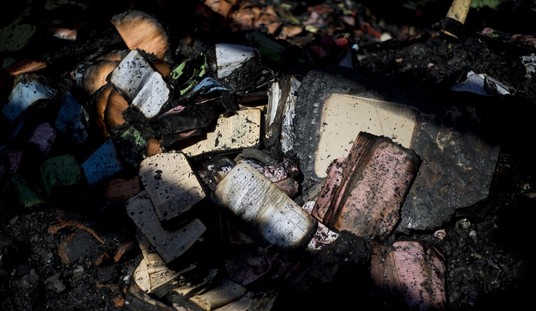WASHINGTON – The joint security agreement between the U.S. and Mexico known as the Merida Initiative has resulted in some obvious improvements in the justice system south of the border and the disruption of some of the most vicious drug cartels operating in the country.
But violence has expanded into much of the countryside and continues seemingly unabated, the Senate Subcommittee on Western Hemisphere and Global Narcotics Affairs was told last week, and the new government taking up residence in Los Pinos is looking at making some changes in the overall strategy.
“Building strong and able justice sector institutions capable of dealing with organized crime and the accompanying violence and corruption is a difficult and long-term endeavor,” Ambassador William R. Brownfield, assistant secretary of state for International Narcotics & Law Enforcement Affairs, told the panel. “It takes years of dedicated and sustained work across numerous institutions and sectors, the political will to affect change and the resources and stamina to see it through.”
The Merida Initiative was conceived by the U.S. and Mexico in 2007 to combat the drug trade and develop a more effective and efficient justice system south of the border.
The agreement was reached during a time when drug-cartel violence was rising dramatically throughout Mexico and corruption was widespread. Law enforcement and the judiciary were ill equipped to deal with the obvious problems.
In 2008, Mexico adopted constitutional reforms that overhauled the police, the courts, and the corrections systems at every administrative level in an effort to build stronger institutions and provide the public with a new degree of confidence that justice could be achieved.
As part of Merida, the U.S. has provided the Mexican government with about $1.2 billion in funding for training, capacity building, and equipment to help implement the reforms. Mexico has invested 10 times that amount.
“Because our assistance was designed jointly with the Government of Mexico, many programs formed integral parts of Mexico’s justice sector reforms and today enjoy a high level of sustainability,” Brownfield said. “Our partnership with Mexico has demonstrated results.”
Since the adoption of the constitutional changes, Mexico has provided training to more than 19,000 federal and state police officers, trained more than 8,500 federal justice personnel, and improved the detection of narcotics, arms, and money, seizing almost $3 billion in illicit goods.
On the corrections side, the number of prisons has expanded from five facilities with a capacity of 3,500 to 14 facilities with a capacity of 20,000. Since 2009, Mexico has apprehended more than 50 senior- and mid-level leaders of drug trafficking organizations, which the government maintains has significantly disrupted the trade.
The election of President Enrique Peña Nieto, a member of the PRI, last August signaled a change of focus for the Merida Initiative but Brownfield and others maintain the cooperative relationship between the two countries continues.
During his successful campaign, Peña Nieto vowed to shift the country’s security strategy away from combating drug trafficking toward reducing violence. Throughout his first six months in office, however, he has been slow to define his new security approach, though the general announcements reflect more continuity than change.
The Peña Nieto administration has announced some plans. It intends to create a 40,000-member gendarmerie. It also has begun the process of centralizing control and command of the security apparatus under the Ministry of the Interior.
“Deliberations between our governments on how to proceed under the Merida Initiative have been productive and comprehensive,” Brownfield said. “President Peña Nieto and his administration are committed to continuing our close collaboration on security issues under the four-pillar Merida framework, with a sharper focus on crime prevention and rule of law.”
The Obama administration has revised Merida’s initial mission, moving from a heavy emphasis on providing military equipment to a strategy intended to reduce the influence of organized crime. The initiative now encompasses four priorities: disrupting the operational capacity of organized crime, institutionalizing the rule of law, creating a 21st-century border to speed the flow of legal commerce, and building strong and resilient communities that can stand up to criminal intrusions.
The Peña Nieto administration has proposed a modified security strategy that includes strengthening the attorney general’s office, revising the practice of pre-trial detention to better protect human rights, establishing a crime prevention commission, and creating a human rights program.
The new government’s strategy also focuses on increased professionalization of police forces.
“We are prepared to work with the Government of Mexico to enhance and professionalize existing law enforcement institutions to develop federal standards for Mexican officials in the areas of training, discipline, training and promotion,” Brownfield said. “We would partner with the Mexican government to provide international experts in policing standards and best practices.”
Meanwhile, Mexico’s federal corrections system, Brownfield said, is “a recognized international leader in corrections reform, with eight federal facilities already certified by the independent American Correctional Association.”
Both nations continue to work on border security, “an area the Peña Nieto administration has prioritized,” according to Brownfield. In a continuing effort to interdict illicit narcotics, arms, and money, the U.S. is offering specialized training for police and Mexican Customs officials that addresses advanced border security and import/export processing techniques and methodologies.
Shannon K. O’Neil, senior fellow for Latin America studies at the Council on Foreign Relations, told the subcommittee that the Merida Initiative has proved most successful in in removing drug kingpins.
“In the last few years Mexican authorities have captured or killed the majority of the most-wanted drug traffickers and substantially disrupted the operations of Mexico’s best-known criminal networks,” O’Neil said. “Many of these high-profile arrests resulted from bilateral intelligence and operational cooperation.”
But otherwise, O’Neil said, the implementation of the Merida Initiative has been uneven, particularly as it pertains to the justice system, perhaps “leaving Mexico’s judicial future uncertain.”
“On a practical level, rising crime and violence have exposed the weak capacity of the current justice system,” she said. “With fewer than 20 percent of homicides ending in convictions, impunity reigns, providing a weak legal deterrent to a life of crime.”
Steps to improve border security also are spotty, O’Neil said, and the U.S. “has done little to address the domestic factors that affect Mexico’s security.”
“The illegal flow of weapons and money southward continues unabated, and U.S. drug consumption remains high,” she said.
Despite U.S.-Mexico efforts, violence is on the rise. When the Merida Initiative was signed in 2007, there were slightly more than 2,000 drug-related homicides in Mexico annually. By 2012, that total had escalated to more than 12,000. Violence spread from about 50 municipalities, mostly along the border, in 2007 to about 240 municipalities throughout the nation in 2011, including the once-safe industrial center of Monterrey and cities like as Acapulco, Nuevo Laredo, and Torreon.
“This increase in violence is not just the direct result of drug trafficking,” O’Neil said. “Criminal organizations have diversified into numerous illicit businesses, including kidnapping, robbery, human trafficking, extortion, and retail drug sales, and as a result prey more directly on the local population. One recent survey found that over 40 percent of Mexicans reported that they or a family member had been a victim of a crime in the past year.”









Join the conversation as a VIP Member